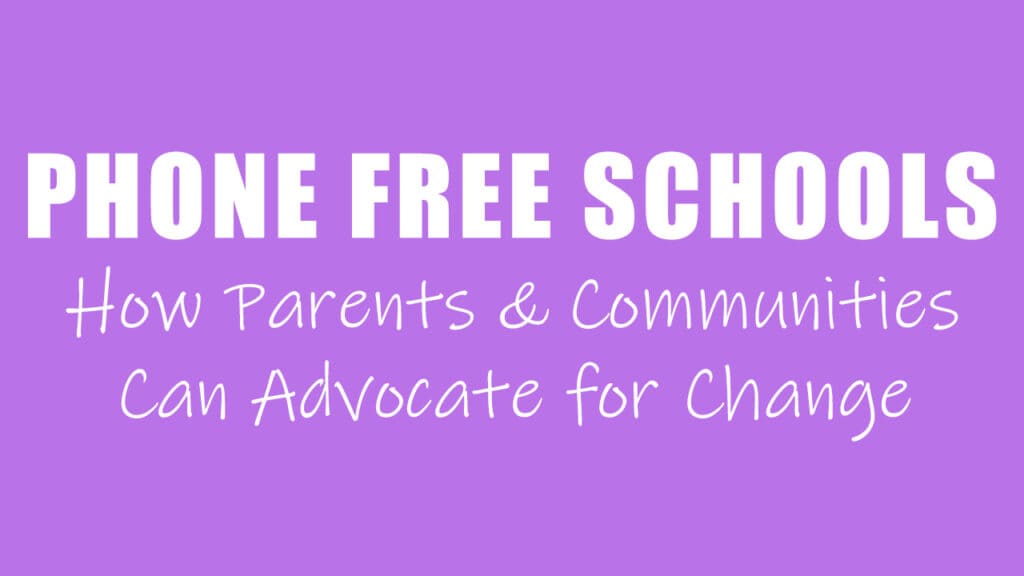Every day, children are distracted and disengaged by their smartphones in school. Teachers struggle to teach while students lose their desire to learn.
Research reveals that phones in schools do more harm than good, increasing distraction, anxiety, and even risk in crisis situations. Yet the push for change is often hindered by parents themselves. If we want to create safe, focused learning environments, it starts with educating parents in the community on the true impact of phones in the classroom.
Here’s how you can advocate for change:
DEBUNK THE EXCUSES
Parents are often the main reason school districts do not adopt screen-free policies because they want to reach and track their children during the school day. Parents reason phones are necessary in case of an emergency or school shooting, but safety experts say this puts a child at more risk due to the phone distraction. The real risks lie within the phone; the very thing parents insist they have on them at all times.
KNOW THE RESEARCH
A Common Sense Media survey revealed that:
- 97% of students ages 11-17 use their phones during the school day
- On average, they check their phones every 3 to 4 minutes
- 35% admit to using their phones to cheat
The consequences? Studies show schools that implement phone-free policies see:
- Increased academic performance
- Decreased visits to psychological counselors
- Reduced bullying and social comparison
For more information and research studies, visit awayfortheday.org
START THE MOVEMENT
If you are a parent concerned about the influence of smartphones in school, you are not powerless. In fact, you can be the catalyst for change. Here’s how:
1. Share the Research & Start a Petition
Use PTA/PTO meetings, booster clubs, church groups, and social media to circulate credible research and raise awareness. Direct parents and community members to resources like the phonefreeschoolsmovement.org, which offers ready-made tools and templates.
2. Rally Support from Educators
Talk with teachers, counselors, and school staff. These are the adults who witness firsthand the disruption that phones cause. Their stories and testimonies can be powerful tools of persuasion.
3. Advocate to School Leadership
Take the research, your petition, and a clear implementation plan to your school’s principal and superintendent. Propose reasonable guidelines and timelines for rolling out a phone-free policy.
4. Present to the School Board
This is often the final step. Show parent support, share student testimonials, and present the long-term benefits of phone-free learning environments. Be persistent and respectful—policy change takes time but is absolutely possible.
Meaningful change only happens when parents lead the charge. It is time to trade convenience for conviction and reclaim our children’s school day.
Start conversations. Share the facts. Mobilize your community. Prioritize education.
DOWNLOAD THIS CONTENT AS A ONE-SHEET REFERENCE GUIDE HERE.













